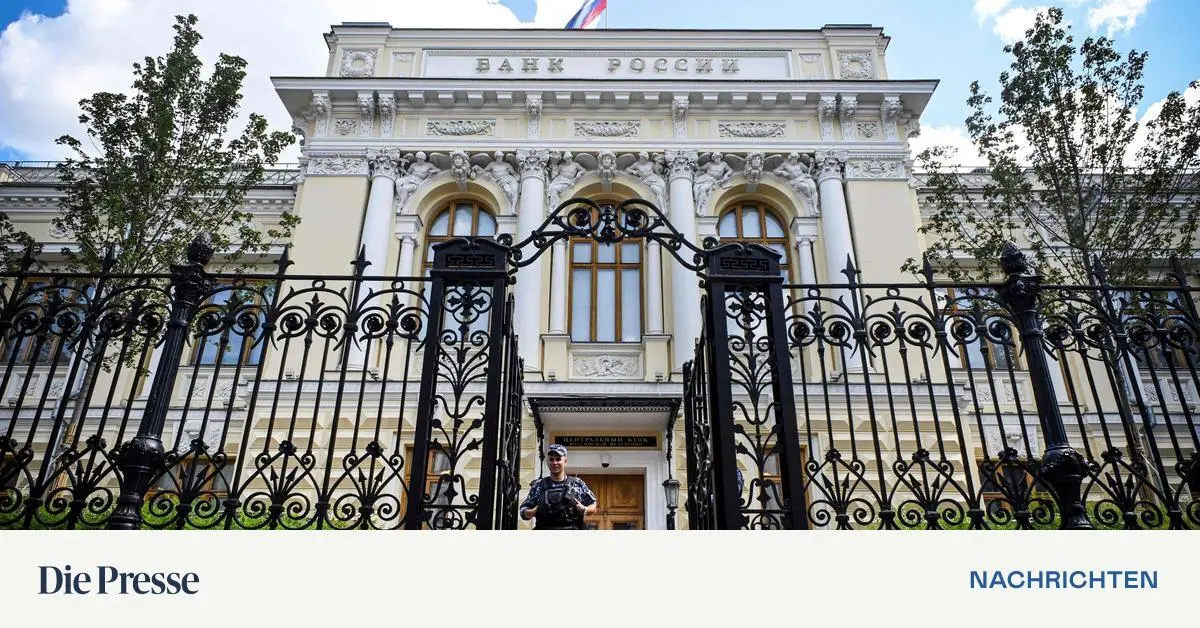Russia’s central bank raised interest rates by a full percentage point to 8.5 percent on Friday. Further tightening of monetary policy was also announced.
The Russian Central Bank raised interest rates for the first time since the invasion of Ukraine. On Friday it unexpectedly raised it sharply by a whole point, to 8.5 per cent. The experts surveyed only had an increase to the 8.0 percent level on their radar. The central bank also keeps open the option of further tightening in September.
Even if the inflation rate has recently remained below the 4 percent mark the central bank is targeting, currency watchers see inflation risks.
The national currency, the ruble, is still showing weakness
One reason is the weakness of the national currency, the ruble, which has continued to lose value in the aftermath of the unrest caused by the uprising of Wagner’s mercenaries at the end of June. Experts assume that as a result, prices of goods and services will rise more sharply during the summer months.
The ruble rose 0.15 percent against the dollar after the interest rate decision. The central bank blames a decline in exports and a rebound in imports for the ruble’s weakness. In June, Russia’s balance of payments turned negative for the first time since 2020. The central bank expects the inflation rate to end at 5.0 to 6.5 percent this year and not return to its four percent stabilization target until 2024.
With a flexible interest rate reaction, the monetary authorities have made a significant contribution to mitigating the economic effects of the conflict in Ukraine and Western sanctions against Russia. The central bank has left interest rates at 7.5 percent since last September. A few days after the Russian forces invaded Ukraine, under the impression of the massive sanctions imposed by the West and the collapse of the ruble, it raised key interest rates from 9.5 percent to 20 percent and later reduced them again gradually.
(APA)

“Total coffee aficionado. Travel buff. Music ninja. Bacon nerd. Beeraholic.”








More Stories
Wealthy families take more risks when it comes to money.
Salesforce and NVIDIA Form Strategic Collaboration to Drive AI Customer Innovation
Changing banks causes problems for customers